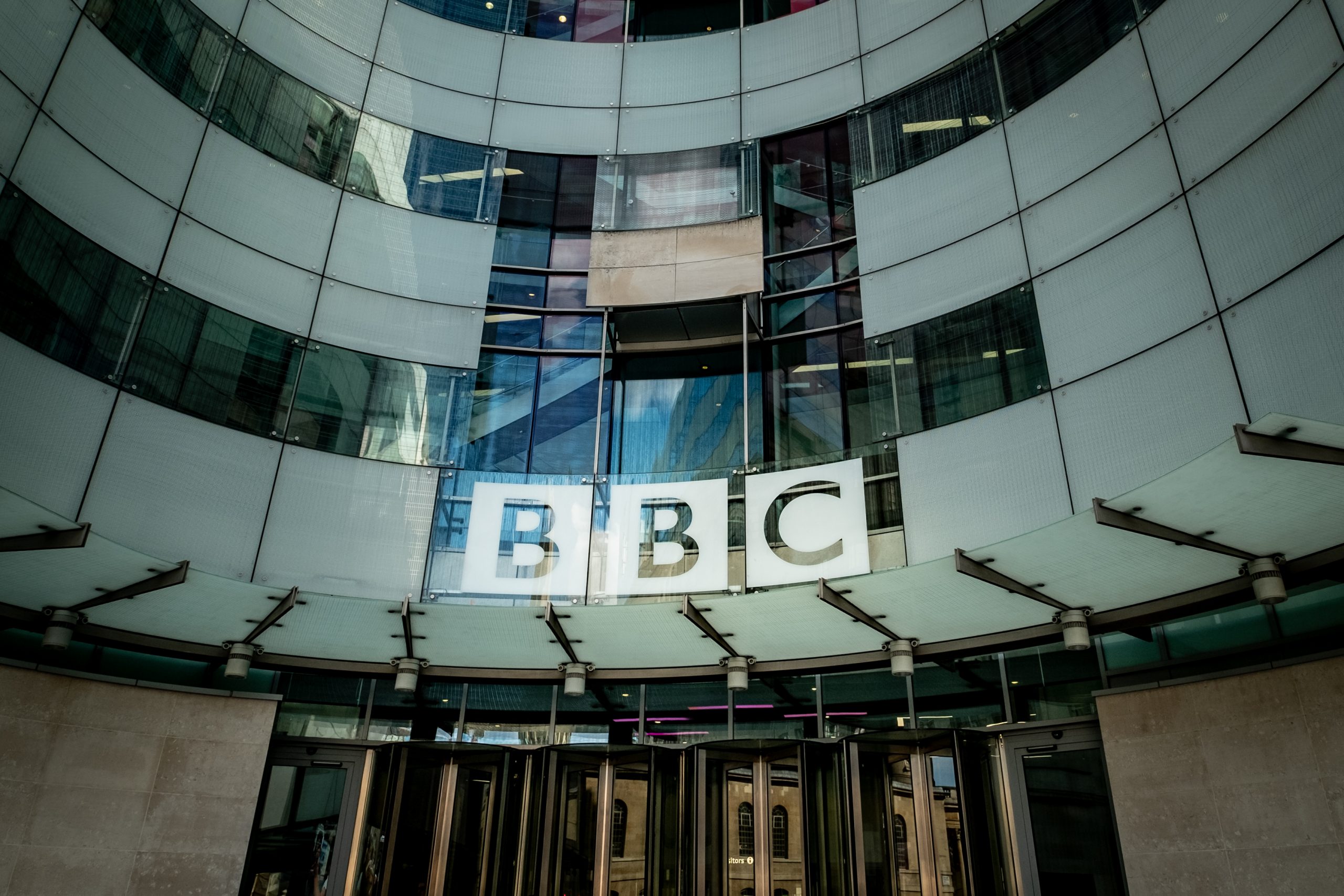WPFD 2025 | PMA INSIGHT
World Press Freedom Day 2025: Our renewed commitment to defend public media
3 May 2025
From deepfakes to dismantled broadcasters, threats to public media are intensifying worldwide. On World Press Freedom Day, PMA’s CEO Kristian Porter outlines why we’re renewing our global commitment to defend public service media.

By Kristian Porter, CEO at Public Media Alliance
Around the world, trusted public service media are facing unprecedented threats. State capture, financial instability, journalist safety, political interference and fragmenting audiences remain ever pervasive, but these challenges are now accompanied – and even bolstered – in their complexity by another: the spread of AI-driven disinformation.
World Press Freedom Day (WPFD) offers us a crucial moment to reflect — not just on the principles that underpin a free media, but on the lived realities of journalists, newsrooms, and public service media (PSM) organisations around the world.
The latest statistics from our friends at Reporters without Borders (RSF) make for grim reading. Globally, press freedom is at an “unprecedented, critical low”, largely due to the exceptional economic pressure faced by those working hard to report on and hold power to account. It’s a tool that is increasingly and purposely deployed by the powerful to limit the operations of free and independent media, and their role in underpinning informed democracy.
This is partly why this year’s WPFD theme, “Reporting in the Brave New World – The Impact of Artificial Intelligence on Press Freedom and the Media,” could not be more timely — or more urgent. AI technologies are transforming journalism in significant ways; they can improve efficiencies, lower costs, and even support fact-checking, so long as there is significant human oversight, responsible guidelines and protections in place to maintain trust, integrity and accuracy.
But they are also being used to obfuscate truth, to distract, and to spread hate by the detractors of democracy and a free press. The pressure on journalists and newsrooms to counter these aspects of AI use, to factcheck, and to deploy rigorous and timely guidelines and processes is increasingly burdensome and costly.
At the Public Media Alliance, we see how these forces are impacting our members and partners every day. From the growing presence of deepfakes during elections to the rise of AI-generated content that outpaces fact-checking efforts, the information environment is becoming ever more complex and perilous. In this “brave new world”, the need for trusted and independent public service media has never been greater. And yet, the challenges to the survival and viability of public media continue to mount.
As autocrats double down on their investments in expanding the reach and capability of their media services, many democracies are failing to protect and invest in one of their greatest defences – a free and independent press. This is why we continue to make the case for increased funding for trusted public media in order to bolster the resilience of citizens and democracies around the world to mis- and disinformation.

PSM Call Out
Today, we are relaunching the PSM Call Out as the Public Media Alliance’s permanent campaign to stand up for public media, its journalists, and the citizens it serves.
The PSM Call Out was originally launched in September 2019. It sought to highlight attacks on editorial independence, funding cuts, threats to journalists, and attempts at political control — challenges that escalated significantly soon afterwards when the COVID-19 pandemic hit. In the years since, the need for solidarity and coordinated action has only grown. Public media’s role as a reliable source of trusted information remains vital, but it is increasingly contested.
The PSM Call Out is more than just a campaign — it’s a continuous commitment. It’s a space where we will consolidate our advocacy statements, relevant insight reports, policy briefings, consultation submissions, and explainer content. It’s where urgent appeals for solidarity will meet deeper analysis and where the immediate and the strategic come together to defend public media worldwide.
It will complement our ongoing work in forums such as the Media Freedom Coalition’s Consultative Network and the Global Task Force for public media, working to ensure that the voice of public media, especially those in peril, is heard.
While the original Call Out advocated for the positive role of public media and its value to citizens, the revamped Call Out will do the same but with a caveat: We will advocate for the positive role of public media, its value to citizens, and vigorously highlight how this role and these values are under threat. Publicly funded media face unique threats, and it is high time that those instances where we feel PSM are continually threatened are called out.
The message is clear: Without strong, independent public media, democratic societies are weaker, less informed, and more vulnerable.
As a result, this new phase of PSM Call Out will also mean more direct advocacy to governments and policymakers through open letters and submissions. It will offer greater opportunities for individuals and organisations to sign and share letters in support of public media, amplifying collective voices across borders. Our goal is to amalgamate PMA’s advocacy efforts into a stronger, unified platform — working with others to connect breaking developments with broader policy trends, sharing case studies, briefings, and consultation contributions that provide evidence and solutions.
In short: PSM Call Out will not just sound the alarm. It will drive action.
More from World Press Freedom Day
Explore our other content marking World Press Freedom Day from this year, and previous years.
World Press Freedom Day | The PMA Briefing
7th May 2025
PSM Weekly | 30 April – 6 May 2025
6th May 2025
Why relaunch now?
Because the threats are growing — and evolving.
In our recent coverage, we highlighted some of the threats public media have faced in the past year. In Europe, the Slovakian government is seeking to dismantle RTVS and replace it with a politically controlled broadcaster while in Bosnia & Herzegovina, BHRT is on the brink of collapse again. In the United States, restructuring and threats within the public media system threaten the independence of international public service media and access to information while its national services face defunding against the will of congress. In South Korea, KBS is facing a funding crisis after a new funding regime caused plummeting revenue. Even countries with historically strong public media like Switzerland are facing funding instability, that could not only result in diminished trusted news availability for Swiss audiences, but for millions around the world.
At the same time, rapid advances in AI technology are flooding the information space with deepfakes and disinformation, while journalists face state harassment, internet shutdowns, and legal threats that silence vital reporting.
We can’t afford to respond piecemeal. We need a united, ongoing call to action — and that is what the PSM Call Out will be.
This relaunch strengthens and formalises PSM Call Out as a permanent, flexible platform, capable of responding swiftly to emerging threats while driving long-term strategies to secure the future of public media.
Learn More About the PSM Call Out
How to get involved
The PSM Call Out is designed to empower action. Here’s how you can be part of it:
- Sign and share open letters calling for urgent support of public media organisations under threat.
- Submit case studies showing resilience, innovation, and defence of editorial independence in your country.
- Contribute expertise through consultations and advocacy briefings to strengthen global responses.
- Amplify our reports and explainers across your networks to raise awareness and pressure decision-makers.
Stay connected by following updates, joining events, sharing insights, and standing in solidarity with journalists and public media workers around the world.
About the author

Kristian Porter is the CEO of the Public Media Alliance, the world’s largest global association of public service media organisations.
Related Posts
3rd May 2025
Five ways AI can save and endanger Public Service Media (at the same time)
Develop AI founder Paul McNally shares…
20th February 2025
BBC research shows issues with Artificial Intelligence (AI) assistants
Conducted over a month, the study saw…





